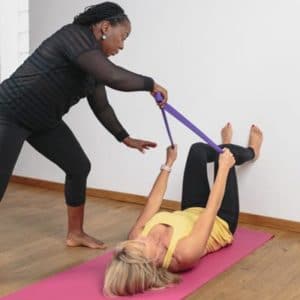My passion and aim is to encourage women to ACT NOW and start to look after their pelvic floor! It doesn’t matter whether you have or haven’t had a baby, are peri or post menopausal or are in your 70’s. It is never too late to actually look after your pelvic floor or seek help with the right specialists.
I hear SO many women either sounding deflated about the issues they have with their pelvic floor muscles or so many feeling there is nothing they can do, they have had issues for years.
Are you one of those who say…..
“OH I ONLY LEAK A TINY BIT”
“I JUST PUT A PAD IN FOR WHEN I’M RUNNING”
“I JUST PEE MYSELF A LITTLE WHEN I LAUGH TOO MUCH”
“ITS NOT MUCH”
“ITS ONLY BECAUSE I’VE JUST HAD A BABY”
“IT’S ONLY A SMALL AMOUNT WHEN I COUGH OR SNEEZE”
Small amounts of leakage – whether it is urinary or faecal, it is still showing there is either weakness or tightness in your pelvic floor muscles.
The pelvic floor muscles
Basically, the muscles are like a hammock running from your pubic bone to your coccyx, attaching to your pelvis. They are there to support your pelvic organs and help the sphincters open and close. They are important for your sexual health and are muscles that need to move in the full range of movement.
The pelvic floor muscles are muscles!! So though new mums are often told to ‘do your pelvic floor exercises/kegals’ they are often not told about the other part – RELAXING the pelvic floor too.
When doing the pelvic floor it is about engaging the muscles and trying to ‘lift’ them but once that has been done, it is important to then relax them and try and feel them lengthened – hence getting a full range of movement in the muscles. Think of them like a trampoline – they need to move & go up and down to be effective.
Pelvic floor dysfunction
Any of the comments above mean you have a dysfunctional pelvic floor. So even the smallest leaking when you laugh means the muscles are either a bit weak or a bit tight. Get them checked out NOW. Women don’t think about the future, we hardly think about what it is like when we get to 60, let alone 80!!
However, do take a minute to think ahead. As we age, we naturally lose muscle mass – over the age of 35. It speeds up when we are post menopausal. That means the pelvic floor muscles are losing muscle mass too, due to the lower amounts of oestrogen in the body.
You can do something about it, you can keep working them – breathing deep into the pelvic floor and then engaging them – you just need to keep remembering to do them. OR every time you are jumping – try and think about engaging them, then relax them after.
They are really hard muscles to work because we cant see them, hardly feel them and certainly don’t think about them!
Exercising with pelvic floor dysfunction
You can exercise with pelvic floor issues, however, you want to make sure you have had your pelvic floor checked 1st. I would learn how to breath correctly so as not to put more pressure on the pelvic floor. You want to learn about NOT holding onto the bum, the tummy & hence the pelvic floor.
I do often get asked ” can I do squats with a prolapse” or someone will say “I have stopped doing all squats & lunges” due to pelvic floor issues. Think about it – you do squats in every day life all the time. Just breath correctly and you can really support the pelvic floor.
Research in June 2019, was on elderly women with urinary incontinence. The purpose of the clinical trial was to determine if weight training combined with pelvic floor muscle training was more efficient than just ‘kegals’ ie pelvic floor exercises on their own.
The outcome: After just 4 weeks, the absence of symptoms in those doing the pelvic floor training WITH weight training, was 58.3% higher than those just doing ‘kegals’ (14.8%).
The ladies were taught how to breathe properly, so as not to hold their breath or bear down on the pelvic floor when doing the exercises – this is in elderly ladies, so imagine how effective it is on those who are younger!
Do something about it NOW
Even if you only have a slight problem and just think using a pad will help. It won’t help the problem. The Women’s Health Physios (WHP) are excellent. They are 100% pelvic floor specialists. Gynecologist are specialist in the whole gynecological area but Women’s Health Physios are specific pelvic floor specialists.
- ask your GP for a referral to the local NHS WHP departments (Bristol is St Michaels & Southmead)
- Ask a Holistic Core Restore® coach in your area – they ALL have contacts
- Look at Hypopressives, a form of breathing that helps tone the muscles around the organs. https://www.vickihill.co.uk/class/hypopressives/
- Look at the Holistic Core Restore® Everywoman course – it teaches you all about the pelvic floor, can help you support it in everyday life, how to get back to running/exercise safely, help with low level prolapse’s (https://www.holisticcorerestore.com/
- Get in touch with me for any help – 1:1 work, hypopressives or Everywoman courses https://www.vickihill.co.uk/class/holistic-core-restore-everywoman/


